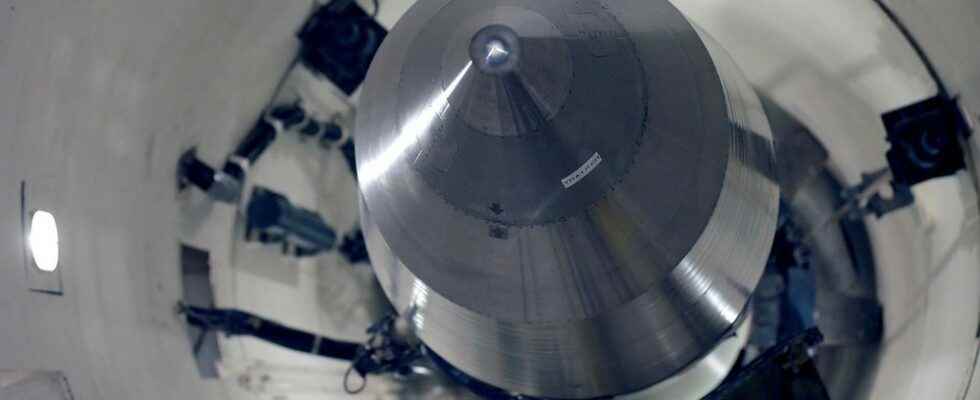Nuclear weapons are one of the key issues when Sweden takes the step into NATO. NATO does not have its own nuclear bombs, but the member states of the United States, Great Britain and France have nuclear weapons at their disposal, and the United States has also deployed nuclear weapons in several countries in Europe.
Sweden wants the same conditions as Denmark and Norway – that is, no nuclear weapons and no permanent NATO bases on our territory.
Prime Minister Magdalena Andersson (S) also claims that Sweden can continue to be a strong voice for disarmament and relaxation in the world, even if we join a nuclear weapons alliance.
It is a fully possible attitude, according to Robert Bell, who has a long career as a security policy adviser and has worked on NATO issues for Presidents Bill Clinton and Barack Obama.
– The basis is that NATO remains a nuclear alliance, as long as nuclear weapons exist. It provides ample space to work for disarmament. The only thing NATO does not accept is that its members support the UN Convention on the Prohibition of Nuclear Weapons, says Robert Bell.
Six months ago, he presented a doctoral dissertation on nuclear cooperation in NATO – in which he also examined the United States’ views on the members who have chosen to stay out.
– Do they have to pay a price? Are they being punished? Are they under pressure to join? The answer is a resounding no, he says.
The dissertation builds on, among other things, in-depth interviews with a large number of high-ranking security policy experts and top officials within the Obama administration and the Trump administration.
Robert Bell states that the conversations gave a clear picture.
– If Sweden and Finland were to choose to join NATO, it is simply not the case that Washington or the NATO establishment in Brussels would exert pressure on Stockholm and Helsinki to accept nuclear weapons. If you are against nuclear weapons, there are other ways to contribute, he says.
He notes that many of the defense leaders in the United States have fairly fluid concepts about which countries are part of NATO’s nuclear weapons group.
– In my dissertation, I asked 25 people – and now we are really talking about the security policy establishment in the United States – if they thought that top NATO officials knew which countries were involved and which were outside. Only three clearly answered yes. Sixteen clearly answered no, he says.
Ivo Daalder, Chairman of the Chicago Council on Global Affairs and former US Ambassador to NATO, believes that Sweden and Finland would contribute to the work of disarmament and detente in NATO.
– There have been such voices for a long time, through Member States such as Germany, the Netherlands and Norway. With Finland and especially Sweden, the voice for disarmament would be strengthened, he says.
But that does not mean that disarmament is a particularly realistic option right now.
– Nothing will happen today. The reality and security situation is such that it is less likely a year ago, or ten years ago, says Ivo Daalder.
Robert Bell also emphasizes that nuclear weapons are part of NATO’s strategy.
– You can not join NATO and say that nuclear weapons are not included in the equation. That’s part of the equation. I think it will remain necessary until we have another Russia, he says.
Historically have different Nordic leaders advocate for a nuclear-weapon-free zone in the Baltic Sea.
This is not a realistic scenario today, says Kimberley Marten, professor of political science at Barnard College who, among other things, researched NATO’s enlargements.
– Russia probably has nuclear weapons in Kaliningrad. However, no one wants to place nuclear weapons in Sweden or Finland, she says.
